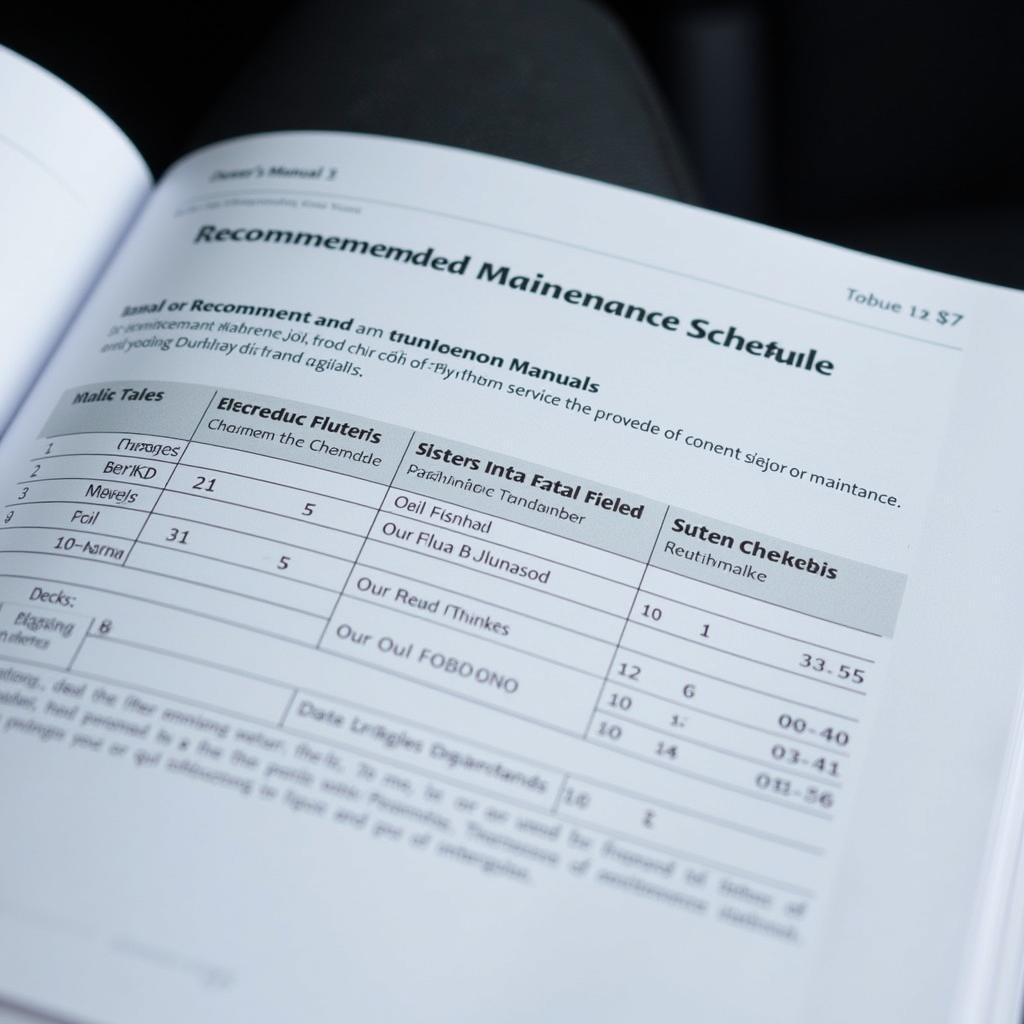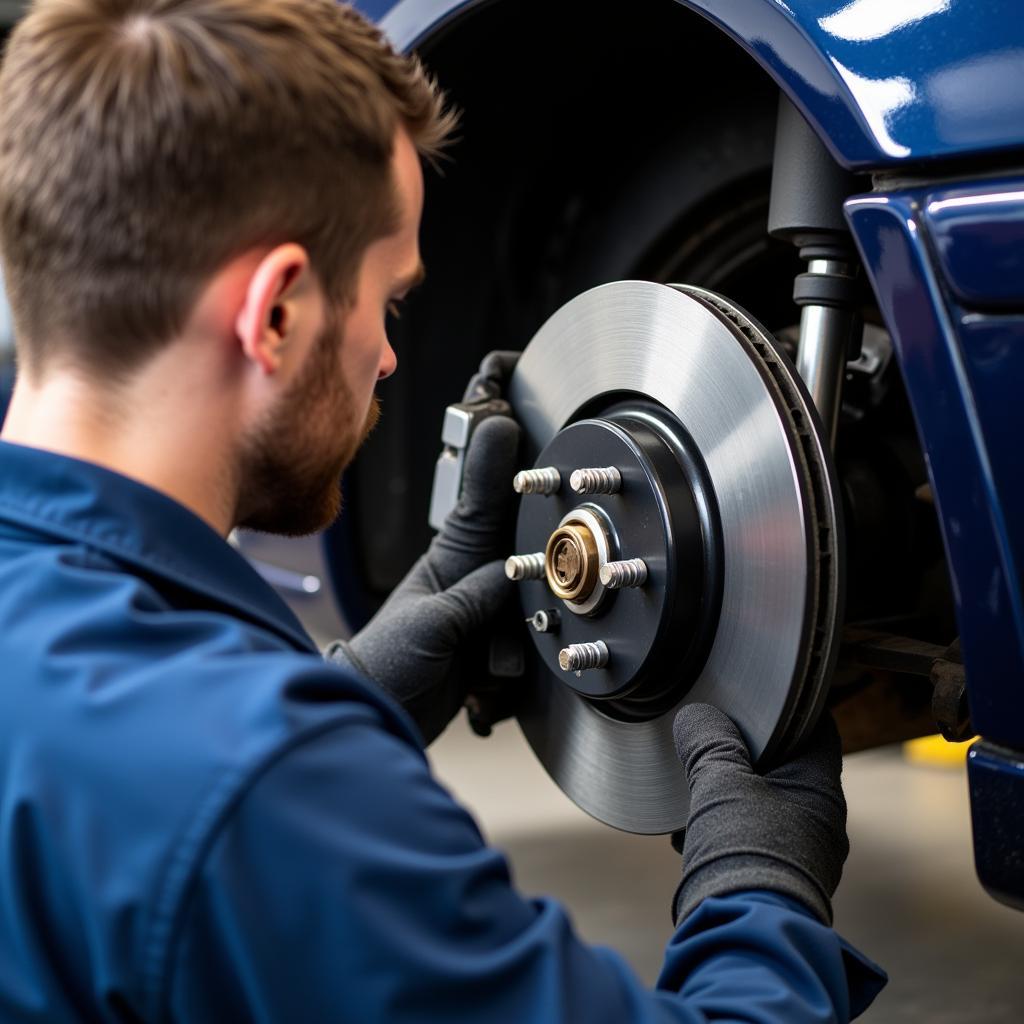When Should I Take My New Car for Service?
Knowing when to take your new car for service is crucial for maintaining its performance, extending its lifespan, and preserving its resale value. While the traditional “3,000-mile oil change” is largely a thing of the past, understanding your car’s specific maintenance schedule is more important than ever. This article will guide you through the essentials of new car servicing, helping you keep your vehicle in top condition. You’ll learn how to interpret your owner’s manual, understand the difference between scheduled maintenance and necessary repairs, and recognize the signs that your car needs attention. Let’s dive in!
Modern vehicles are built with advanced technology and synthetic oils, leading to longer service intervals. Gone are the days of frequent oil changes; your new car likely requires service less often. Refer to your owner’s manual, the ultimate guide for your car’s specific needs. It outlines the recommended service schedule based on time and mileage, covering everything from oil changes and tire rotations to more complex procedures. You can learn more about getting a car service book via this link: how to get a car service book.
Understanding Your Car’s Maintenance Schedule
Your car’s maintenance schedule is tailored to its make, model, and even driving conditions. Pay close attention to the recommended intervals for oil changes, filter replacements, fluid checks, and other essential services. Following this schedule helps prevent premature wear and tear, ensuring your car runs smoothly for years to come.
Decoding the Maintenance Codes
Many manufacturers use codes to indicate specific maintenance tasks. These codes, found in your owner’s manual, can seem cryptic at first. However, they provide a shorthand way of describing essential services. Familiarize yourself with these codes to understand what each service entails.
 New Car Maintenance Schedule in Owner's Manual
New Car Maintenance Schedule in Owner's Manual
Scheduled Maintenance vs. Necessary Repairs
Scheduled maintenance is preventative, addressing routine tasks to keep your car running optimally. Necessary repairs, on the other hand, arise from unexpected issues or component failures. While scheduled maintenance is predictable, repairs are often unpredictable, requiring immediate attention. Are you considering a service contract? Check out this article: should you buy a service contract on a new car.
Recognizing When Your Car Needs Service
Even with diligent adherence to the scheduled maintenance, unforeseen issues can occur. Be attentive to any unusual noises, vibrations, or performance changes. These could indicate a problem requiring immediate attention.
Common Warning Signs
- Dashboard warning lights: These are crucial indicators. Never ignore a warning light; consult your owner’s manual or a qualified mechanic promptly.
- Unusual noises: Squealing brakes, knocking sounds from the engine, or clunking noises from the suspension could signal a problem.
- Fluid leaks: Check your parking spot regularly for any signs of fluid leaks. Different colored fluids can indicate different issues.
- Changes in performance: Decreased fuel efficiency, difficulty starting, or sluggish acceleration can all be warning signs.
 Dashboard Warning Lights Indicating Car Service Needed
Dashboard Warning Lights Indicating Car Service Needed
When Should You Take a New Car for Its First Service?
Most new cars require their first service within the first 6 months or 5,000-7,500 miles, whichever comes first. This initial service is crucial for checking all systems, ensuring proper function, and addressing any potential issues arising during the break-in period. Considering DIY service? This article may help: how to service my car myself.
What is included in a new car’s first service?
Typically, a new car’s first service includes an oil change, filter replacements (oil, air, and cabin), fluid top-offs, tire rotation, and a comprehensive inspection of all major systems. This inspection covers brakes, suspension, steering, and other critical components. For more on major service, see what does major service on car include.
Expert Insight: “The first service is not just about an oil change,” says automotive expert, Michael Stevens. “It’s a thorough check-up to ensure your new car is performing as expected and to address any potential issues before they become major problems.”
Staying Ahead of Maintenance
Don’t wait until something goes wrong to take your car for service. Following the recommended maintenance schedule and being attentive to warning signs will save you money and headaches in the long run. Is yearly service necessary? Find out here: do you need to service your car yearly.
Conclusion
Knowing when to take your new car for service is essential for its longevity and performance. By understanding your car’s maintenance schedule, recognizing warning signs, and staying proactive, you can keep your vehicle running smoothly for years to come. Remember, regular maintenance is an investment, not an expense, when it comes to your new car.
FAQ
- How often should I change my car’s oil?
- What are the most common warning signs that my car needs service?
- What is included in a typical car service?
- How can I find a reliable mechanic?
- Why is regular car maintenance important?
- What should I do if a warning light comes on?
- How can I save money on car maintenance?
Common Service Scenarios
- Scenario 1: Your check engine light illuminates.
- Scenario 2: You hear a squealing noise when you apply the brakes.
- Scenario 3: Your car is vibrating excessively at high speeds.
- Scenario 4: You notice a fluid leak under your car.
- Scenario 5: Your car is not accelerating as smoothly as it used to.
Further Reading
- How to choose the right tires for your car
- Understanding your car’s warranty
- The importance of regular brake checks
Need assistance? Contact us via WhatsApp: +1(641)206-8880, Email: [email protected] or visit us at 456 Oak Avenue, Miami, FL 33101, USA. We have a 24/7 customer support team ready to help.

